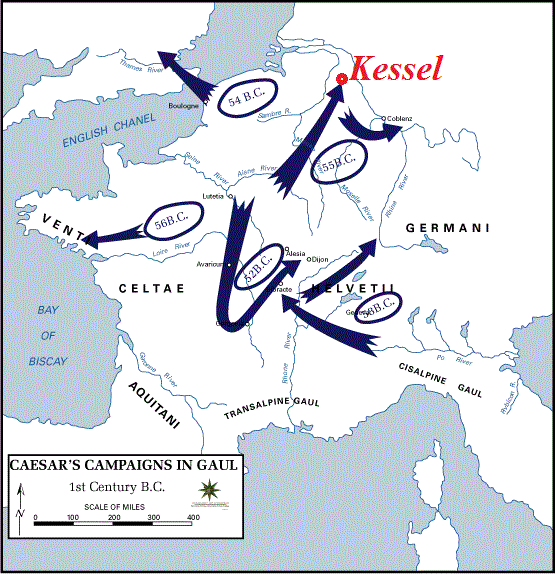It's nice when we are able to confirm with some degree of accuracy the locales of the Proconsul's campaigns on either side of the Rhine, but what exactly was "prove[d]" here? That Caesar carried out campaigns on the borders of and within ancient Germania? If only there were other sources of information concerning this event...(Starts at IV.16) Check the maps:
The findings were discovered in Kessel, Netherlands... about right where Caesar says that he fought a battle with the local tribes in 55 B.C. Another map:
Let's take a closer look at that red-boxed area in the upper-right quadrant.
My, my. So, archaeologists went to where Caesar recorded that he had fought a battle with the Usipetes and Tencteri, and lo! these intrepid diggers found evidence of a battle fought by Caesar against the Usipetes and Tencteri? What was proved again? I fully respect and appreciate the work of archaeologists, but the media needs to stop reporting findings as if archaeology has proven the account of the ancients, as if the ancient documents need "proving".




